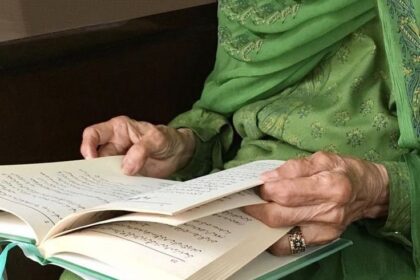Self-Care: We dream of childhood — play at 5, dinner at 8 — only to wake and find adulthood has given us nightmares instead. But owing to our luck (and humanity’s lost sense of sanity), our wish has been granted — but not in the way you might think.
As children, we used to have nightmares about shadows and monsters hiding under the bed. Now, as adults, these nightmares have turned into reality, trapping us in a world of overwork, exhaustion, and exploitation. The modern workplace is the new night terror for adults. With its endless demands, it has turned us into the very “monsters” we once feared — machines of productivity that feed on our souls and consume our well-being; we type away our lives.
At the heart of this crisis is the concept of hustle culture. With social media trends to ‘lock in’ and dreams of ‘becoming a millionaire at the age of 17 or somewhere along the line’, we have glorified the belief that working harder, longer, and faster automatically makes someone more valuable. Nevertheless, it is undeniable that in our modern world and consumerist economy, these things are what create our ‘value’ in society. But it does not justify the inhumane workplace ethics we have developed to normalise mistreatment and overwork.
Employees are treated as modern slaves who are expected to sacrifice their sleep, family time, and health as if their worth lies in such derogatory actions. Bosses expect workers to pour out their blood and time as if bound in servitude. Those who stay late or work overtime are praised, while those who set boundaries are viewed as less committed.
Work has become a battlefield of competition instead of what it should be: a space of collaboration, support, and shared purpose — we are all here for the same reason. It was meant to be productive and it was supposed to contribute positively to our lives and society. But instead, we have fallen into burnout. Stemming from excessive demands, constant surveillance, and a lack of autonomy, workplaces not only witness declining performance but also create long-term mental and physical harm.
However, it is crucial to note that burnout is not just an individual problem — it is a product of the structure of our work culture. The rigorous policies of companies, the presence or absence of mentors, and the customs set by colleagues and managers (‘the office politics’) directly shape whether employees can thrive or collapse. To frame burnout as a personal weakness, which is to be fixed with meditation apps or yoga breaks, is to be completely ignorant and blind to the fact that it is NOT a personal failure.
Note: Remember to read your contracts when you take up a job. ‘Beneath the fine print, you might sign away your life… Unfortunate, but true… I am a victim myself. They are out there…you might be next…’ – Anonymous Employee X (missing – whereabouts unknown)
We fail to understand that collective action is vital to resolving this issue. We humans are social beings; we are shaped to thrive in the communities we are part of. It is exhausting to be on your own when you need others more than ever — and together we can demand change and be the best versions of ourselves.
For instance, healthcare workers are organising for safe staffing levels — in October of 2023, the U.S. saw its largest healthcare strike, lasting three days, as 75,000 Kaiser Permanente workers walked out. Such unionisation efforts showcase a communal way of negotiating over working conditions, pay, benefits, or other points of contention.
Similarly, tech employees are pushing back on toxic rules they are expected to follow. Amazon warehouse workers pushed for unionisation to demand humane hours of work and conditions back in 2019, while during the 2018 Google walkouts, employees protested over sexual harassment and unequal treatment and demanded policy change. These examples showcase how burnout and exploitation of employees are solved by unity and resilience.
When workers unite, they win better wages, real boundaries, and peaceful environments. Beyond these victories, collective action itself offers healing — the realisation that you are not alone in your suffering brings a sense of relief. It turns loneliness into solidarity, despair into power, and most importantly, it overruns the system that thrives on the exploitation of its workers.
So no, meditation won’t cure burnout-even if scented candles or yoga calms you down at first, nothing will change until the root cause is acknowledged and fixed. The cure is simple: keep the ‘human’ element alive — fair pay, humane hours, and supportive workplaces where there is life-work balance, not the other way around. And the only way to get there is by standing together. Because true self-care isn’t something you do alone, but something we build collectively — an environment where everyone can work in peace without ticking bombs over their heads.
Simply put, true self-care is collective care — because only together can we defeat the monster under the desk.













